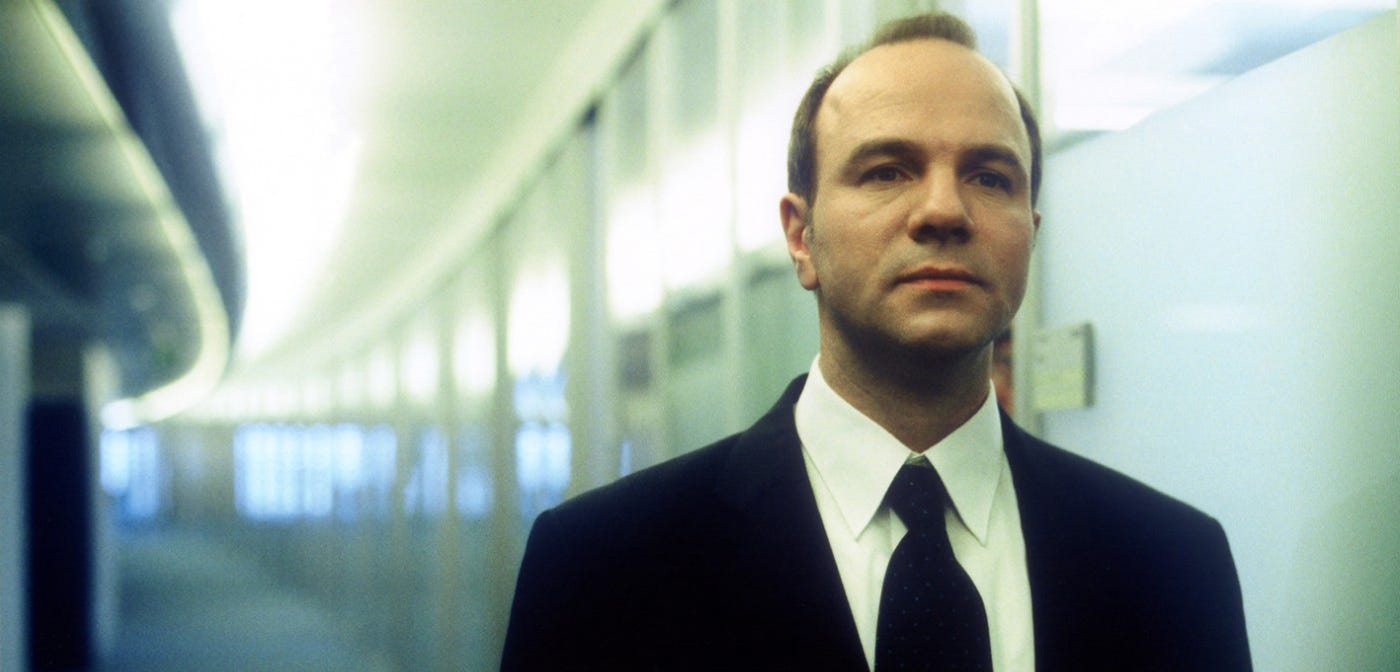When Laurent Cantet Clocked In
With his first two films, 'Human Resources' and 'Time Out,' the late French director dug deep into the nasty entanglements of the personal and the professional.
In January 1993, Jean-Claude Romand went on a two-day killing spree that resulted in the murders of his wife, their two children, and his parents, and the near-death of his ex-mistress, who survived a strangulation attempt. It was the gruesome climax of an 18-year deception that had inevitably come to an end. During that time, Romand had told family and friends that he was a politically connected researcher with the World Health Organization, but he never qualified as a doctor and what medical knowledge he did possess was mainly gleaned from the WHO’s free information services. Living off money from an apartment sale, his wife’s salary, and investment scams that he pitched to his relatives, Romand apparently spent most of his days wandering around, occasionally leaving his French home for work trips that never actually got further than Geneva, Switzerland. When he was finally cornered, he attacked with astonishing psychopathy.
The great French director Laurent Cantet, who died last week at age 63, used Romand’s story as the inspiration for his 2001 masterpiece Time Out, but removed the murders. That tells you almost everything you need to know about Cantet’s priorities as a filmmaker. Any other director would followed this pattern of deception to its bloody payoff, which unfolded in four separate instances of violence—five if you include his (possible) attempted suicide afterwards—that are dread-soaked enough to fill out a Michael Haneke film festival. Yet Romand’s actions as a killer did not interest Cantet so much as the time he spent spinning lies that he surely knew would be uncovered at some point. Take away the sensationalism and you’re left with more intriguing questions: Why did he do it? How did he fill his days? What relationship did he have with his family and with the rest of humanity, both of which he kept at a distance?
Cantet was a progressive director, firmly grounded in the politics of the workplace and in the machinations of society-at-large. His best-known film is 2008’s The Class, a sensitive treatment of a middle-school teacher in a Paris neighborhood populated heavily by first-generation immigrants, who would send their “problem” children to his middle-school class for French lessons. It won the Palme D’Or with a unanimous jury, in a slate that included fine work by Steven Soderbergh (Che), Paolo Sorrentino (Il Divo), Lucretia Martel (The Headless Woman), the Dardennes (Lorna’s Silence), and Charlie Kaufman (Synecdoche, New York). Cantet’s previous film, 2005’s Heading South with Charlotte Rampling, bluntly chronicled the inequities of the sexual “companionship” offered to white vacationers at a Haitian resort, and he and his frequent screenwriter, Robin Campillo, tackled a 2012 adaptation of the Joyce Carol Oates novel Foxfire: Confessions of a Girl Gang.
Yet it’s Cantet’s first two features, 1999’s Human Resources and Time Out, that I felt most inclined to revisit for The Reveal, because they’re both profound statements about our relationship to the workplace, even though the hero of the latter film doesn’t spend a legitimate minute in one. It is a general reality that most adults spend half their waking life on the job, and Cantet was compelled by how much that investment gets entangled with a person’s identity, whether they’re welders on the factory line, would-be executives keen to eke out a profit, or an enigma who seems to lose a major part of himself when he loses the routine created by work. These are films about time on the clock and time off it; about the profound and insidious grip that work has on our psyches; and the consequences of letting go.
Keep reading with a 7-day free trial
Subscribe to The Reveal to keep reading this post and get 7 days of free access to the full post archives.




